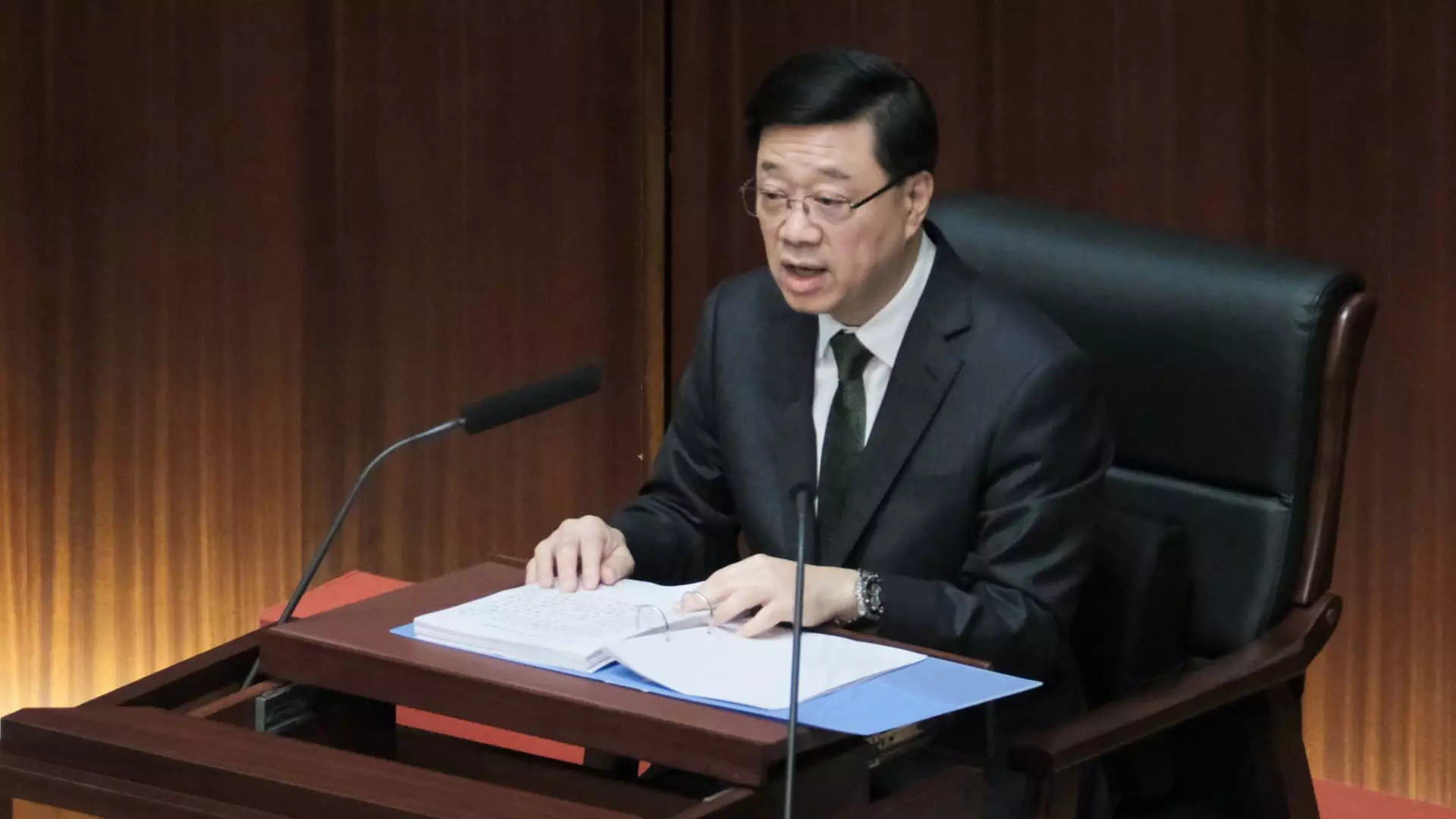Hong Kong’s housing situation has long been a topic of heated debate, characterized by soaring prices and insufficient affordability for its residents. The recent policy announcements from Chief Executive John Lee reflect an urgent need to confront what can only be described as a housing affordability crisis. Such a crisis does not merely affect those looking for luxury condos or spacious apartments; it resonates deeply across demographics, particularly among the younger population. This ongoing challenge has been exacerbated by rising living costs and stagnant wages, forcing many residents, especially those under 40, to make difficult choices regarding their housing futures.
In a bid to tackle these pressing concerns, the government has unveiled a series of initiatives specifically targeting residents under the age of 40. One pivotal change introduced by Lee during his annual policy address is the allocation of an additional ballot number for younger applicants seeking subsidized housing. This measure intends to improve the likelihood of selection for the Home Ownership Scheme—a vital program for first-time buyers struggling to enter the congested real estate market. With only a limited number of units available, increased access to subsidized flats could provide respite for many young families and individuals facing the daunting challenge of affording decent housing.
Moreover, the government plans to elevate the quota for the “White Form Secondary Market Scheme” by an additional 1,500 units—again, exclusively reserved for applicants under 40. This is an essential move, considering that in 2023, only 4,500 households were eligible to benefit from this scheme. By expanding accessibility, the government may successfully loosen the grip of high property prices on younger individuals, effectively allowing them to make housing more attainable.
Beyond immediate policy adjustments, the government is also committed to exploring long-term solutions to the housing crisis. Lee’s administration continues to support the Youth Hostel Scheme, a program aimed at relieving some of the strain on young citizens seeking affordable accommodation. By working with non-governmental organizations to subsidize the rental of hotels as youth hostels, the government fosters an environment where young individuals can secure temporary housing without facing insurmountable financial burdens.
In a more ambitious move, the government is set to introduce a new system for renting subdivided flats—a prevalent but problematic solution to the housing shortage. Many of these “shoe-box sized” units have been linked to serious health and safety issues, a reality that highlights the urgent need for regulations and reform. Lee’s plan to convert substandard living conditions into “Basic Housing Units,” which adhere to minimum standards such as adequate ventilation and sanitation, signifies a crucial step towards improving public health and safety.
In terms of new developments, the government anticipates completing approximately 9,500 public housing units next year, chasing an ultimate goal of delivering 30,000 units by the 2027-2028 timeline. With the current waiting period for public housing at around 5.5 years, there is hope that this timeframe could be reduced to 4.5 years by 2026-2027. These changes come at a critical juncture for Hong Kong, a city that has consistently ranked as one of the least affordable places to live globally, according to the 2024 Demographia International Housing Affordability report.
John Lee’s recent policy address marks a significant shift in focus, moving from addressing issues of national security towards improving livelihoods and bolstering the economy. The initiatives outlined, especially those focused on helping younger residents access affordable housing, represent a necessary evolution in government policy in response to the citizenry’s pressing needs. While these measures may not provide immediate solutions to the enduring housing crisis faced by many in Hong Kong, they do at least signal a recognition of the problem and a willingness to act. Only time will reveal the efficacy of these strategies, but they could prove pivotal in shaping a more sustainable and equitable housing landscape in the near future.

